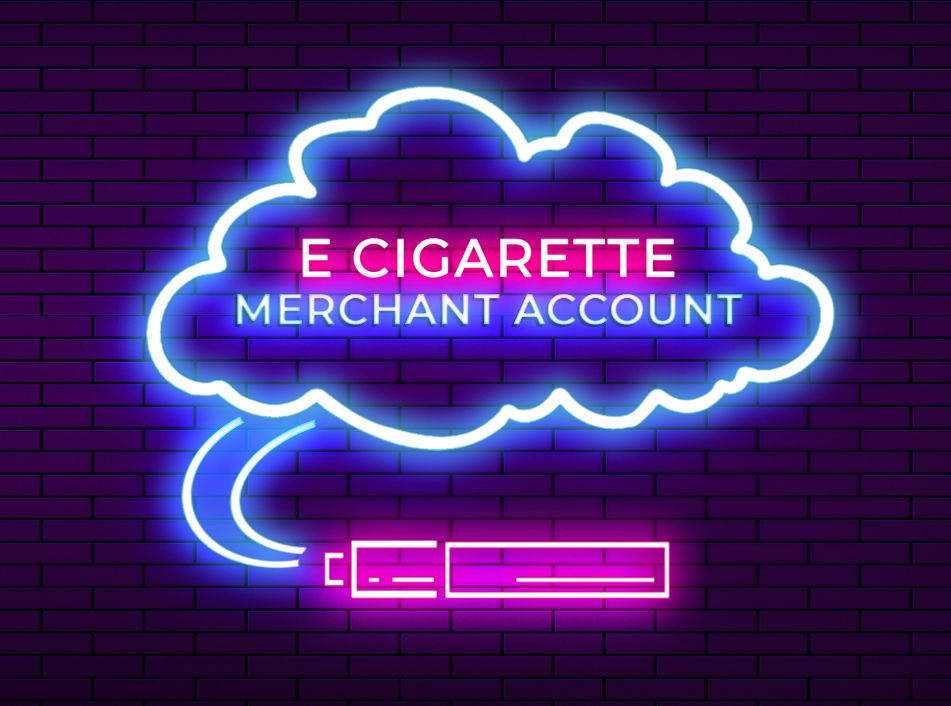Signup Now
Adult Merchant Account
Apply Today, Be In Business Tomorrow
- 99% Approval Rate!
- No Application Fee
- No Setup Fee
- No Contract
- Bad Credit OK
- Fast 24 Hour Approval
- Chargeback Prevention
- Next Day Funding
We at Merchant Marvels specializes in credit card processing services for high risk merchants.
Contact us to increase your sales and pay less in processing fees.
Why vape & e-Cigarette business is considered high risk business
Due to the fact that the e-cigarette, e-cigarette, or vape market is still developing, major banks and payment processors have classified it as high-risk. The e-cigarette market is currently too small and there isn’t enough information readily available about how it functions.
The vape and e-Cigarette industry is also highly regulated. There are a large number of FDA regulations that clearly outline a long list of rules for vape and cigarette sales. Retailers have to take into account any applicable city and state rules.
There are legal and age restrictions on vape sales that have made the industry to be considered high-risk. Most payment processors often hesitate to partner with vape retailers because many vape devices can be used for smoking marijuana. In addition to vape juice and pens, accessories for the devices (including atomizers and batteries) are considered high-risk as well.
Even though it is not known that the liquids used in e-cigarettes contain the same toxins as cigarettes, their use is debatable because it is yet unclear what the long-term effects will be. As potential health dangers are discovered over the ensuing years and decades, this opens the door for a plethora of lawsuits to surface. This is one of the reasons why the big banks and well-known payment processors don’t want to offer merchant services to companies who sell e-cigarettes and vape products.
Additionally, a lot of new businesses are emerging to compete for a share of the money that e-cigarettes are still bringing in. This is a challenge because a substantial portion of the sector is made up of novice/inexperienced business owners with little to no history of accepting payments. Regardless of the industry, this could be enough to put a company in the high-risk group.

Signup Today For a Merchent Marvels Account
The following are some elements that make businesses in the adult entertainment industry high risk:
The most crucial thing to keep in mind is to be open and truthful about the nature of your business when registering for a high-risk merchant services account. Your merchant services account may be immediately terminated as well as subject to significant fines if you misrepresent your company.
Filling out an application with a merchant services provider is the first step in opening a high-risk merchant account. You’ll need to provide the necessary paperwork, such as your business’s financial history, merchant service history, and credit history. Since we have experience working with high-risk merchants, as soon as you submit an application, our team starts working to get you approved.
The goal of underwriters is to confirm that merchants are running ethically and legally. Maximizing the chances of approval is possible for merchants who can back that claim with factual information in the form of disclosures and restrictions. When examining vendor applications for e-cigarettes or accessories, underwriters look for evidence that the applicant is abiding by all legal requirements. This includes not advertising questionable or illegal drugs like marijuana or marijuana-related goods like CBD Oils and tinctures.
Bank statements, credit card processing histories, merchant credit scores, and the company website are all examined by underwriters. An application will not be approved if it has a history of late payments, unpaid invoices, high chargeback rates, or a bank account with a negative balance. Websites with a secure SSL, and with the merchant’s privacy and refund policies explicitly stated thereon, will help improve chances of a successful application.
Merchants preparing for an underwriter interview should take steps to ensure they have money in the bank, no outstanding debts and an applicant with an exemplary personal credit history. Applications are more likely to be approved for websites that have a secure SSL and expressly explain the merchant’s privacy and refund policies.
Merchants should take precautions to make sure they have money in the bank, no unpaid debts, and a candidate with a stellar personal credit history before they attend an underwriter interview. Meeting these criteria will increase a merchant’s chances of being accepted by proving that they are a reliable and legitimate company. Such merchants are more likely to find solutions for accepting electronic payments without restrictions like a high volume processing threshold or a reduced rolling reserve.
Fill out our online application form to request a merchant account for selling e-cigarettes right away.
To speed up the process and improve your chances of being approved, have the following ready when you apply:
Valid government-issued photo ID – e.g., driver’s license, state/provincial ID, etc.
A bank attestation or void check
Bank statements (3 months worth)
Processing statements (3 months worth)
SSN (Social Security Number) or EIN (Employer Identification Number)
Proof of SSL website
A chargeback history of less than 2%
Merchants who meet these criteria can receive approval in 24-48 hours.
Chargeback problem with vape & e-Cigarette business
Chargebacks are a common occurrence in the vaping industry. Chargebacks can happen for a variety of reasons and they often stem from consumer dissatisfaction. If your company experiences an excessive number of chargebacks, your costs can increase and your merchant account might be terminated.
To curtail this, pick a high-risk credit card processing service provider that is knowledgeable and experienced in the vape sector. They will be able to walk you through the procedure and set up chargeback prevention measures for you to use to help resolve disputes.
The following are the greatest techniques we advise for lowering vape and e-Cigarette payment chargebacks:
Your free trial subscriptions must be truly free.
Indicate your business policies in detail.
Provide 24-hour customer service
Utilize techniques to prevent chargebacks e.g., a fraud detector
Determine the appropriate course of action for the chargebacks you are receiving by recognizing the types of chargebacks you are getting and making adjustments accordingly.

Signup Today For a Merchent Marvels Account
Difference between vape & e-Cigarette and low risk merchant account
The vape/e-Cigarette business and low risk accounts differ in some important ways. The main distinction is that if major banks or low-risk processors determine that you are a high-risk customer, they would close your account or refuse to cooperate with you. Compared to low-risk merchant accounts, vape and e-cigarette merchant accounts may experience difficulties such as higher fees, a monthly credit card cap, delays in financing, and a rolling reserve, processing companies and banks are taking on additional risk by taking you on. Working with a high-risk processor safeguards your company over time from having its cash frozen or withheld while enabling you to have worldwide coverage and handle sales almost anywhere in the world.
Can you get an account if your account was closed before?
While it might be impossible to re-open a closed merchant account, you can get a new one. This requires that you are honest about your previously terminated account/accounts to your intended service provider as underwriters conduct a proper background check on all applicants to verify them before approval.
If your history of a previously closed account isn’t clearly spelt out in your application, you run the risk of not being approved. Howbeit, it is essential to keep your history of terminated/closed accounts to the barest minimum. A long history of previously terminated/closed accounts can put you on a blacklist or watch list which can limit your chances of account approval in the future.

Signup Today For a Merchent Marvels Account
Can you get an account if your account was closed before?
Your choice of payment processor will have a significant impact on how much your high risk merchant account fees ultimately cost you. As each service provider determines their service prices differently, these fees will vary. However, to ensure that you don’t end up incurring undue cost for payment processing, search for a provider who offers price structures that best suit the unique requirements of your business.
The following fees are what you should expect to pay and they might be subject to negotiation between you and your service provider to ensure you both get the best deals.
Refund Fees
The smoothest and most cost-effective operation of your high risk merchant account depends on having a trusted and experienced payment processor. When it comes to paying the charges Associated with consumer refunds, certain processors can be rather obstinate, and you run the danger of getting overcharged for both payment processing and refunding transactions if you don’t use a single provider to manage your business operations.
PCI Compliance Fees & Services
PCI Compliance Fees differ from processor to processor. This often depends on some factors. It is important to read the fine print of the service providers contract to understand if they offer PCI compliance services and if you are being charged or not.
In some cases, the service provider provides PCI compliance services and you are charged, or the service provider provides PCI compliance services and you are not charged, the service provider does not provide PCI compliance services and you are charged.
Carefully reading the fine print can help you determine if this is a legitimate cost or not. In the case that your provider charges a PCI compliance fee, you’ll either be charged on an annual or monthly basis.
Payment processors typically provide these PCI compliance services:
Customer Education & Support
This service is one of the most crucial. If your payment processor includes “customer education and assistance” in their PCI compliance service, you may be able to benefit from an extensive base of resources that will inform you of PCI compliance standards and provide support in the event that security vulnerabilities are found.
Be sure to discuss with your selected provider how to get the most out of the PCI compliance service.
Security Monitoring
Keeping your account secure is the main goal of PCI compliance. Customers expect the strict security that comes with this designation when you tell them that your company is PCI compliant.
If your payment processor charges a fee for PCI compliance, they better have this service included.
Every component of your processing system, including your website, payment gateway, card terminals, server, etc., should be properly scanned by PCI compliance security services for viruses, malware, and other potential risks.
Your system must be scanned at least once every three months to stay PCI compliant. Some suppliers will even offer to perform this on a monthly basis, assisting you in continuously staying up to date with all of your security requirements.
Insurance Coverage
If insurance is included in your PCI compliance fee, you’ll be compensated for any damages or claims due to data breaches where your customers’ personal information was either lost or stolen.
This is, however, subject to legal restrictions and operates within a set of exclusions, so your insurer can decline to pay for your data breach claim.
Chargeback Reserve Fees
The chargeback was intended to safeguard customers in cases of fraud, when they did not receive ordered goods, etc. However, many consumers have learnt to take advantage of this system, leading to the development of what is known as friendly fraud (where a customer files for a chargeback without having a legitimate reason to do so).
In this case, the law is not on the merchants’ side because they are presumed guilty unless they can demonstrate their innocence. As a result, chargeback fees and customer reimbursements will be deducted from your account automatically — no ifs, ands, or buts.
These fees don’t seem excessively high at first, but they can add up quite quickly, becoming a real dam in your revenue stream.
Much like a security deposit, the chargeback reserve serves as the acquiring bank’s insurance against financial loss, much like an escrow fund might.
The 3 most common types of reserves include:
Rolling Reserve
For a rolling reserve, a portion of each credit card deposit—probably between 5 and 10 percent—is kept in a reserve for somewhere between six months and a year. When the specified duration is over, the reserved funds are sent back – monthly – to the merchant.
Up-Front Reserves
This sum of money must be put into escrow when you sign an agreement, and that constitutes this form of reserve.
Capped Reserve
A certain percentage is taken off every transaction until the agreed-upon amount is reached. This amount is usually about half of your business’ monthly volume. The capped reserve is held until your merchant account agreement expires.
Termination Fees
If you terminate your account earlier than the agreed date, you are liable for an early termination fee. This fee is estimated as the cost the payment processor will incur as a result of the early termination of your contract.
The common variants of this fee are:
Flat Fee
This is a pre-set amount that is to be paid upon the early termination of your account.
Liquidated Damages
If you agree to this, you might have to pay a significant amount of money if the contract is terminated early. If, for instance, you sign a 6-year contract and cancel it 2 years into the agreed duration, you will have to pay 4 years’ worth of processing costs as penance.
It’s important that the terms of the termination fee are well discussed and decided upon before signing any documents.
Do High-Risk Businesses Lessen Your Chances to Get An E-Cig Merchant Account?
Being a high risk business, most merchant account service providers and acquiring banks may not want to work with merchants in this line of business. Being a high-risk merchant also means some providers may completely reject your application because of your high level of risk. The heavy FDA regulations, potential lawsuits, chargebacks and age legality restrictions can prohibit some of these service providers from working with you.
This means that you often have to consider merchant account service providers other than your local acquiring banks. However, you are likely going to pay larger credit card processing fees than those that are not high-risk. You may also have a limit on the number of credit card transactions you can process and some merchant service providers might require you to have an aggressive cash reserve. They might also try to lock you into a long-term contract with high termination fees.
